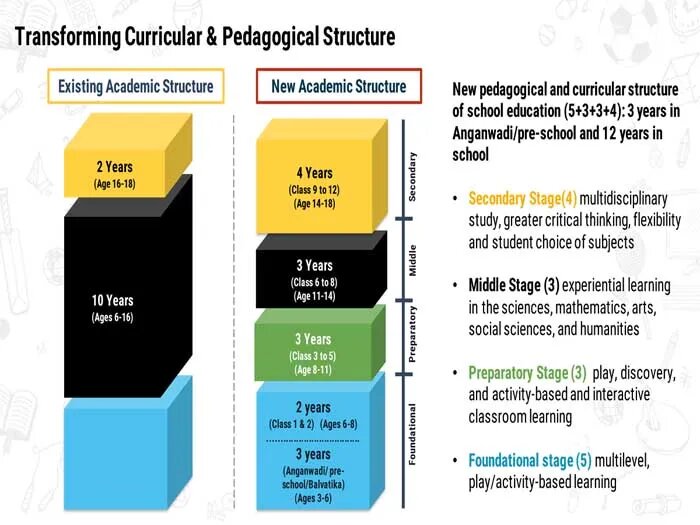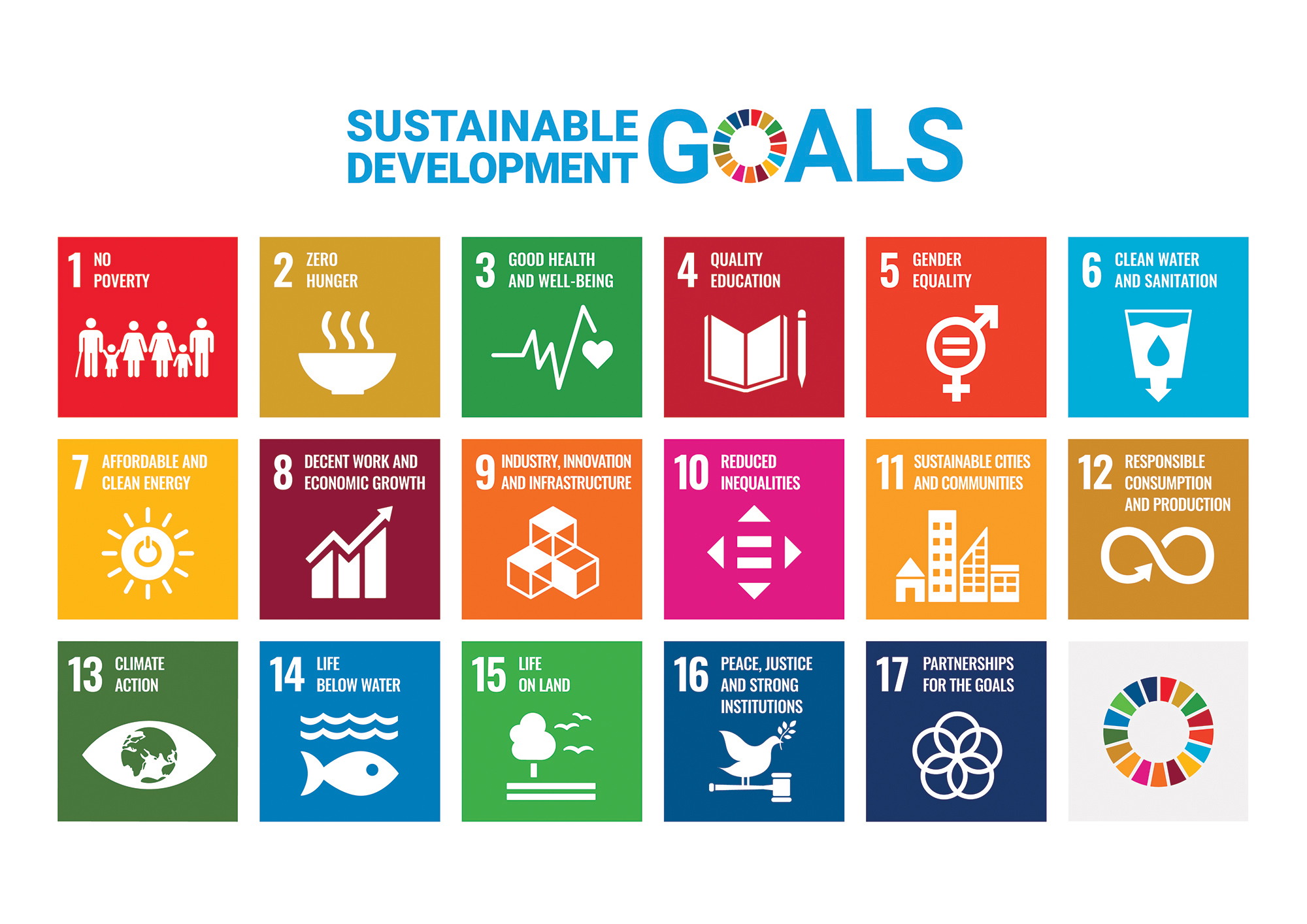What is NEP 2020 policy
Contents
- 1 Preface
- 2 Early Childhood Care and Education (ECCE):
- 3 School Education:
- 4 Multidisciplinary and Holistic Education:
- 5 Language Policy:
- 6 Higher Education:
- 7 Technology in Education:
- 8 Teacher Training and Professional Development:
- 9 Regulatory Framework:
- 10 Inclusivity and Special Education:
- 11 Assessment Reforms:
- 12 Financial Allocation:
- 13 Global Collaboration:
- 14 Lifelong Learning and Adult Education:
- 15 Cultural and Ethical Values:
- 16 Student and Parental Engagement:
- 17 Sustainable Development Goals in Education Policy (SDGs):
- 18 Flexibility in Academic Choices in Higher Education:
- 19 Challenges and Criticisms in NEP 2020:
- 20 Concluding Remarks : Revamping the Education Policy of India
Preface
The National Education Policy (NEP) 2020 is a comprehensive framework that aims to transform the education system in India. Envisioned as a guiding document, the NEP 2020 addresses the various challenges and gaps in the existing education system and lays out a roadmap for the development of education in the country. This policy, approved by the Union Cabinet of India on July 29, 2020, replaces the National Policy on Education (NPE) 1986, marking a significant shift in the approach towards education for the mulya pravah.
The fundamental pillars of access, fairness, quality, affordability, and accountability serve as the foundation for the NEP 2020. It aims to give pupils a comprehensive, inclusive education that equips them for the challenges of the twenty-first century. Let’s delve into some of the key aspects of the policy.
Early Childhood Care and Education (ECCE):
The NEP 2020 seeks to give children between the ages of three and six a solid foundation while acknowledging the value of early childhood education. In order to facilitate a seamless transition from home to school, the policy places a strong emphasis on ECCE’s integration into the formal education system. Early exposure is essential for the social, emotional, and cognitive development of the child.

School Education:
The policy proposes to replace the conventional 10+2 system with a 5+3+3+4 curriculum and pedagogical framework. Five years are dedicated to the foundational stage, three years to preparation, three years to middle stage, and four years to secondary stage under the new structure. This adaptable method is intended to meet the individual learning requirements of kids at various developmental stages.
In order to give pupils, the opportunity to explore and improve their talents in a variety of disciplines, the NEP 2020 also suggests introducing vocational classes starting in the sixth grade. The intention is to encourage critical thinking and experiential learning while lessening the focus on memorization and rote learning.
Read out the Article on Multiple Entry & Multiple Exit Scheme 2020
Multidisciplinary and Holistic Education:
The NEP 2020 places a strong focus on interdisciplinary education, which is one of the major changes. The approach breaks down the strict boundaries between the arts, sciences, and commerce by encouraging students to take studies in various streams. With this method, students will be prepared for a variety career options by fostering a comprehensive grasp of the disciplines.
In order to bolster this interdisciplinary strategy, the policy proposes creating a National Research Foundation to foster innovation and research across a range of disciplines. The goal of this action is to establish India as a worldwide centre of knowledge.
Language Policy:
The NEP 2020 suggests a flexible language policy while acknowledging the value of multilingualism. The strategy promotes study of regional languages and English, while highlighting the significance of mother tongue or local language as the medium of teaching up to at least Grade 5. This method seeks to protect linguistic variety while improving pupils’ multilingualism. #nepmulya
Higher Education:
The goal of the policy is to create a flexible, all-encompassing system of higher education that fosters innovation, creativity, and critical thinking. It suggests incorporating vocational education with traditional courses so that students can acquire both academic and practical abilities. In addition to highlighting the value of research, NEP 2020 seeks to raise the Gross Enrollment Ratio (GER) in higher education.
The proposal suggests creating the National Higher Education Regulatory Authority (NHERA) to manage financing and certification in order to improve the calibre of higher education. It also recommends turning universities into dynamic, diverse hubs that prioritise creativity and research.
Technology in Education:
Understanding how technology can change lives, NEP 2020 promotes using digital tools and resources in the classroom. It places great value on the use of technology in administrative procedures, teacher preparation, and personalised learning. The goal of the policy is to close the digital gap by using online and digital learning to reach distant communities.
Teacher Training and Professional Development:
The NEP 2020 recognises that educators will play a pivotal role in determining the direction of education in the future. It suggests redesigned teacher preparation courses with an emphasis on ongoing professional growth. Through creative training initiatives, the policy hopes to draw gifted people into the teaching profession and improve instruction quality.
Regulatory Framework:
The NEP 2020 recognises that educators will play a pivotal role in determining the direction of education in the future. It suggests redesigned teacher preparation courses with an emphasis on ongoing professional growth. Through creative training initiatives, the policy hopes to draw gifted people into the teaching profession and improve instruction quality.
Inclusivity and Special Education:
With the goal of guaranteeing that every child, irrespective of socioeconomic background, has access to excellent quality education, the NEP 2020 lays a significant emphasis on inclusiveness in education. Special efforts are made towards children with impairments i.e. divyangs, and the policy defines strategies to make education more accessible and helpful for them. This include the creation of resource centres, zones for special education, and the supply of assistive technology.
Assessment Reforms:
The policy suggests switching to a competency-based learning strategy rather than rote memorization. It suggests modifying the assessment system such that formative evaluations, critical thinking, and conceptual comprehension take precedence over customary summative tests. The intention is to lessen students’ stress and workload while encouraging a deeper comprehension of the courses undertaken.
Financial Allocation:
For the successful implementation of the NEP 2020, adequate financial resources are crucial. The policy outlines the commitment to increasing the public investment in education to 6% of the GDP, acknowledging the importance of financial support in achieving the envisaged reforms. It is anticipated that this additional funding would support teacher preparation, infrastructure development, and general facility upgrades in educational institutions.
Global Collaboration:
To increase the worldwide competitiveness of Indian education, the NEP 2020 promotes cooperation with organisations and institutions of higher learning abroad. This includes international best practises adoption, student exchange programmes, and research partnerships. According to the policy, India would serve as a worldwide centre of knowledge, both adding to and gaining from the global network of educational resources.
Lifelong Learning and Adult Education:
Recognizing the need for continuous learning in a rapidly changing world, the NEP 2020 emphasizes lifelong learning. It promotes the integration of adult education programs, vocational courses, and skill development initiatives to cater to the learning needs of individuals at all stages of life. This approach aligns with the evolving nature of work and the importance of upskilling and reskilling in the modern workforce.
Cultural and Ethical Values:
The policy underlines the significance of inculcating cultural and ethical values into education. It aims to instil a sense of pride and understanding of India’s rich cultural heritage while promoting values such as empathy, respect, and social responsibility. The NEP 2020 acknowledges the role of education in shaping responsible and ethical citizens who contribute positively to society.
Student and Parental Engagement:
To enhance the overall educational experience, the NEP 2020 encourages active involvement from students and parents. It envisions a participatory approach where students have a say in their educational journey, fostering a sense of ownership and responsibility. Additionally, parents are encouraged to be active participants in their children’s education, creating a conducive and collaborative learning environment.
 Sustainable Development Goals in Education Policy (SDGs):
Sustainable Development Goals in Education Policy (SDGs):
The NEP 2020 emphasises the importance of education in attaining social and economic sustainability and is in line with the SDGs of the United Nations. By addressing problems like gender inequality, universal access to high-quality education, and environmental awareness, the policy supports the larger international goal of building a more just and sustainable society.
Flexibility in Academic Choices in Higher Education:
The NEP 2020 encourages academic choice freedom while recognising the diversity of students’ interests and abilities. It recommends implementing a credit-based system so that students can select their courses according to their skill level and interests. This flexibility is intended to meet each student’s unique learning needs and promote a more customised and interesting educational experience.
Challenges and Criticisms in NEP 2020:
Despite being widely praised for its progressive vision, the NEP 2020 is not without its share of difficulties and detractors. Among the issues brought up by educators and professionals are the policy’s adaptability to various regional settings, resource distribution, and grassroots implementation. Effective cooperation between the federal and state governments, as well as enthusiastic participation from stakeholders and educational institutions, will be essential to the NEP 2020’s success.
Concluding Remarks : Revamping the Education Policy of India
In summary, the National Education Policy 2020 offers a thorough and progressive road plan for changing India’s educational system. With a focus on early childhood education, higher education, and beyond, the policy attempts to establish a dynamic and inclusive learning environment. Policymakers, educators, parents, and students must work together to successfully execute NEP 2020, which will start a cooperative path towards a more dynamic and internationally competitive Indian educational system.
The historic NEP 2020 programme aims to revitalise and reinvent India’s educational sector. The goal of the strategy is to establish a strong and inclusive framework for education in order to address the flaws of the current system and bring it into line with international best practises. The NEP 2020 will only be successful if it is implemented well, is continuously evaluated, and all parties involved work together. In India’s quest to transform into a knowledge economy, the NEP 2020 acts as a road map, influencing the direction of education in the nation.

